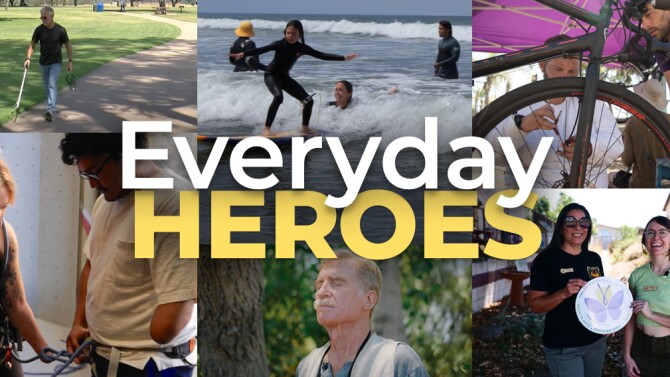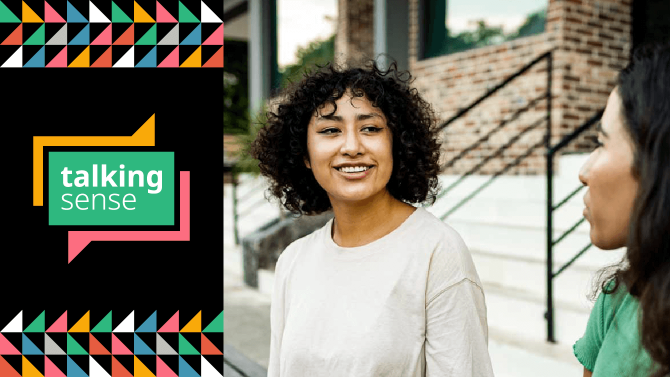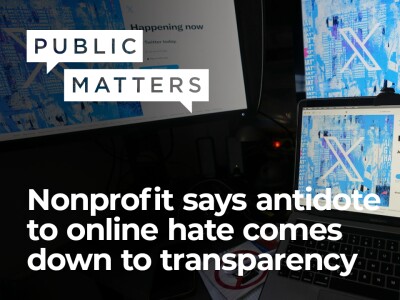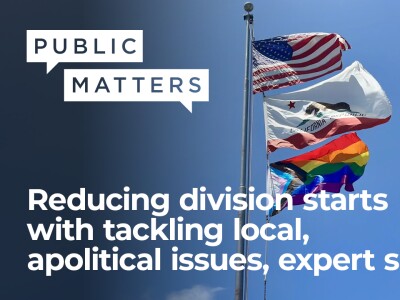




Share your thoughts
A lot has changed since the last International Day of Democracy.
The day is meant to be a chance to review the state of democracy in the world and “reinforce the importance of upholding free speech, civil liberties, and the rule of law; ensuring accountable institutions; and protecting and promoting human rights,” according to U.N. Secretary-General António Guterres.
But many fear democracy is eroding. Research shows that Americans’ trust in government and each other is on the decline. There is less hope, less civil dialogue, and less faith in local and federal government.
To explore those changes, we’re hosting a live Q&A as part of our Public Matters initiative.
We want to hear from you about your questions on democracy, housing, civic engagement and local government. Submit them in the form below.
Then, join our livestream Wednesday, Sept. 24 at noon on YouTube, Facebook, Instagram, and TikTok.

_
-
San Diego County Supervisor Terra Lawson-Remer is considering major revisions to county governance. The reforms could include converting the leader of county operations into an elected mayor.
-
A proposal to raise an annual tax on empty second homes and vacation rentals failed at a City Council committee meeting last week. There were two very different world views on display.
-
Some local small businesses in are donating Friday proceeds to support immigration advocacy groups
-
A new California law is prompting local governments to adjust parking citation fees for those experiencing hardship. In Mission Bay, the new law could help one local family.
Who We Are
Public Matters is an initiative of KPBS, inewsource and Voice of San Diego.
These three independent, non-profit journalism organizations are sharing content, conversation, and events that ensure all San Diegans understand their opportunity to participate in the democratic process and that it means more than voting in an election.
At its core, it is about reminding us that we have a shared humanity, and together we are empowered to make positive change.
Public Matters will lead up to the 250th anniversary of the signing of the Declaration of Independence on July 4, 2026.
Public Matters is generously funded by Irwin and Joan Jacobs.

























